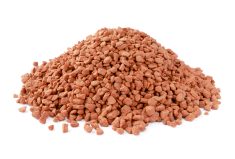The provincial government wants public input before deciding whether to ban cosmetic pesticide use in Manitoba.
Although pesticides used in agriculture — including insecticides, herbicides and fungicides — aren’t included in consultations, a possible ban on cosmetic pesticides would still have repercussions for farmers, said Doug Chorney, president of Keystone Agricultural Producers.
“We need to get all the facts on the table,” said Chorney, a forage seed producer. “A lot of people don’t understand the impact a simple thing like a dandelion outbreak can have on a farmer.”
Read Also

Farmer-friendly nematodes: Tiny worms for big canola pest control
Not all nematodes are equal in farm fields. Beneficial species of the tiny soil-dwelling worms could one day help beat back damaging canola insect pests like diamondback moth on the Canadian Prairies.
Not controlling dandelions in residential areas can lead to greater outbreaks of the weed in crops, and it makes more sense to develop science-based regulations for cosmetic pesticides instead of banning them, he said.
Chorney said his organization isn’t opposed to public discussion on the matter, and agrees there may be overuse of pesticides in some urban areas.
“I think we would welcome better user education and even perhaps licensing users of pesticides in urban areas where there is high population exposure,” said Chorney.
According to Statistics Canada, Manitoba households have one of the highest rates of pesticide use in the country at 47 per cent.
In 2009, the province referred the issue to the Manitoba Round Table for Sustainable Development, which recommended a full ban on the sale and use of cosmetic pesticides. Other provinces have already taken that step, including Ontario, but it hasn’t stopped many homeowners, said Chorney.
“A lot of people there are still using pesticides, they are refusing to give them up and a sort of black market has been created,” he said.
In Portage la Prairie, the city now uses cornmeal gluten on dandelions instead of herbicides.
“I don’t think you could find a safer product than this,” said Dave Green, parks manager for the city. “And over the last two years we have noticed a reduction in the number of dandelions.”
But the product doesn’t work overnight. Cornmeal gluten, which deprives new plants of moisture, must be applied just as new dandelions are emerging and doesn’t target established taproots. Because it’s 10 per cent nitrogen, the yellow powder also helps grass grow, without adding to phosphorus levels.
“Having good healthy turf is another good way to stop weeds,” said Green.
The move to cornmeal, which is slightly more expensive, came from public demand, said Green, noting many people used to complain when 2,4-D was applied.
“There is a smell with that, and then people are wondering what chemical it is, what they are breathing,” he said.
Manitobans have until October to give their opinion at www.gov.mb.ca/conservation/envprograms.


















